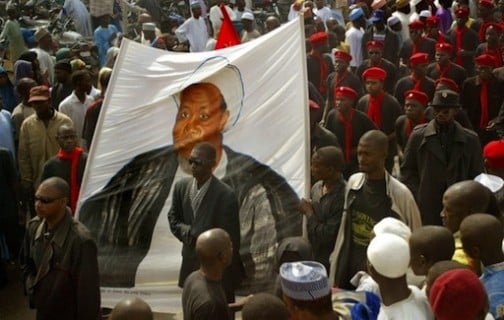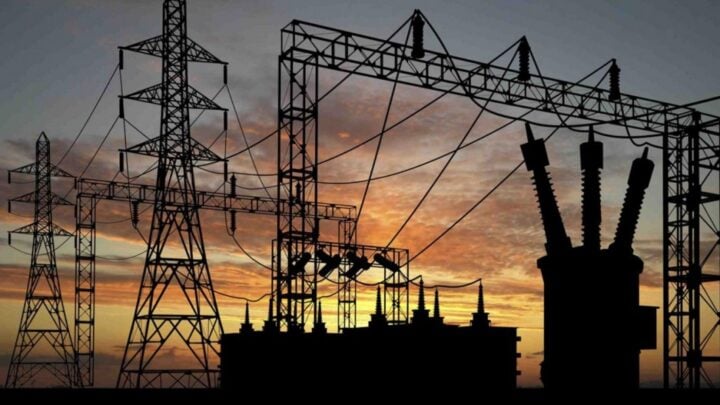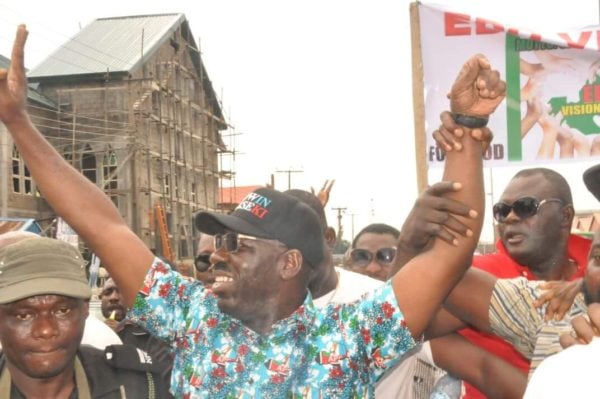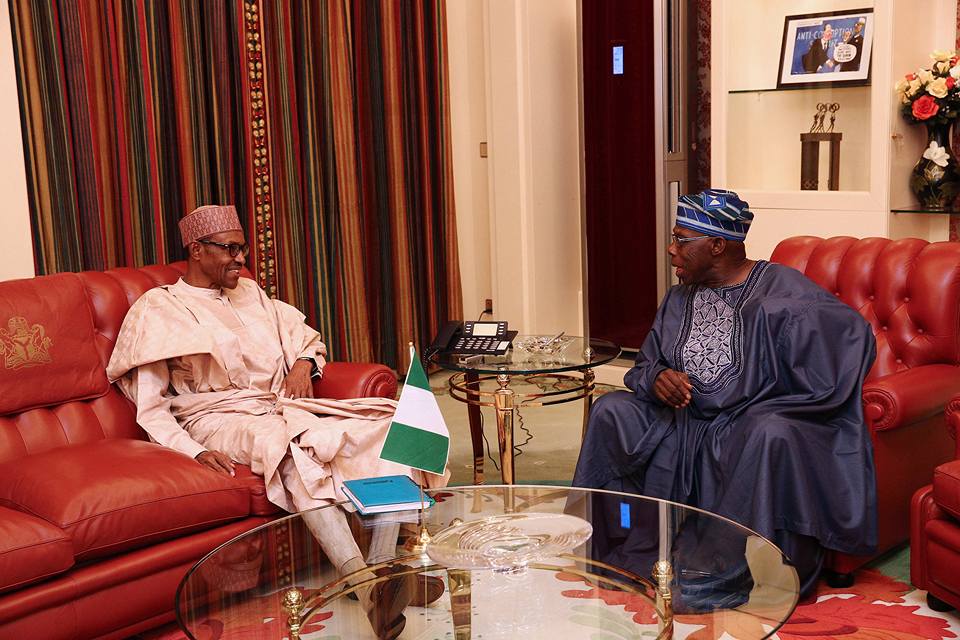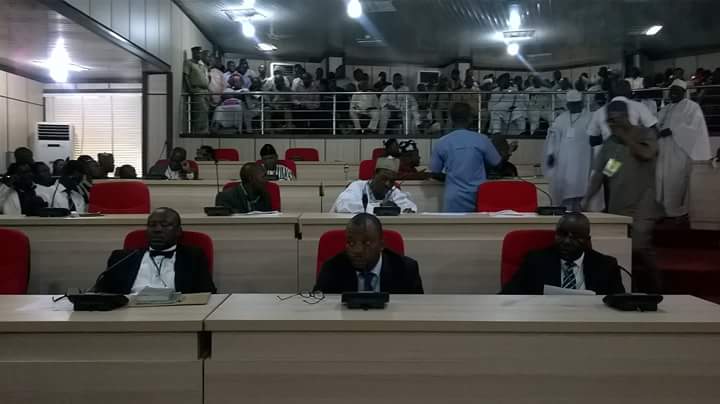BY GABRIEL ONOJA
“As followers of Sheik Ibraheem El-Zakzaky, we shall never submit ourselves to the dictates of the Nigerian government, even if our own lives will be taken away by the forces of its security agents,” were the words of Sheik Sanusi Abdulkadir Koki, IMN’s newest leader.
Truly God loves Nigeria. Despite months of desperation to conceal the evil plot on Nigeria, the truth has surfaced irrepressibly. Security agents in Nigeria need no further evidence greater than this bold, verbal affront on the sovereignty of the country. Can Shiites be regarded as the newest wing of terrorism in the country?
The treacherous comment made in Kano by the newest leader of the Islamic Movement in Nigeria (IMN) during the burial of some dead members of the sect, gives us a cause to be worried.
Sheik Koki described the sect’s dead members as martyrs, who have adhered to “the very footsteps of Imam Husain (AS) who was massacred alongside his followers, for not surrendering himself to the dictates, wish and whims of Yazid Bin Mu’awuya.” He further prodded the sect members never to subject themselves to the dictates of the laws of the Federation of Nigeria.
Advertisement
For the Shiites, it is a history of unjust rebellion against the state or constituted authority, from wherever the sect evolved. And its adherents anywhere in the world are neck-deep into this aberration unknown in decent climes.
But Nigerians know that the IMN is not a registered organization in Nigeria, despite its near 40 years of existence in the country. And recently, the criminal activities of the sect earned it a lawful ban in Nigeria, through the Kaduna state government, where the sect’s headquarters is domiciled. The ban has also been replicated in Kano and Borno states.
The doubt that has just been cleared is the sect’s self-proclamation of its status as Nigeria’s latest brand of terrorists after the defeated Boko Haram Terrorists (BHTs). And the Nigerian Shiites are making no pretenses about their determination to outshine the cruelty of BHTs in violent assault on the Nigerian state.
Advertisement
Nigerian Shiites have displayed traits of sect’s that eventually mutate into terror groups in the country. In 2009 when BHTs surfaced under the leadership of Yusuf Mohammed, their first target was security agents, especially the police. In the early 80s, the notorious Maitatsine sect led by a 1945 Cameroonian migrant into Kano city, Alhaji Mohammed (Muhammadu) Marwa also began violent campaigns by openly traducing laws of the state and attacking security agents who enforced compliance.
Marwa’s inciting preachments to followers were overlooked and underrated for years, just like the Shiites have gathered momentum, for more than three decades and now stepping out to courageously challenge the authority of the Nigerian state.
In flaunted flags of dishonor, they have rejected compliance with every law and government’s directive. They are ever ready to violently confront the state to impose their own laws on the state.
Each time Nigerian Shiites storm the streets/roads with “religious” processions, they are armed to the teeth with assorted primitive, but dangerous weapons. It has never been a co-incidence to find Shiites members brandish weapons like catapults, stones, swords, clubs, bows and arrows, dane guns, leopard skins, as bulletproof vests and powdered charms during all their processions.
Advertisement
It is this unprovoked inclination to violence by Nigerian Shiites that led to the violent attack on the convoy of the Chief of Army Staff (COAS) Gen. Yusuf Buratai in Zaria, Kaduna state, in December 2015. The latest incident of the Shiites brutal confrontation of the police in Kano, which resulted in the death and injuries of some police officers could give the sect members out as terrorists, disguised as religious worshippers’.
More than anything else, what has bolstered the Nigerian Shiites to violently lay siege on parts of Nigeria is the active support it receives from the Republic of Iran.
The United Nations (UN) is now silent on the matter, but Iran as a UN-member nation has continued to secretly plot the complete destruction of Nigeria. Iran has ultimately destabilized Nigeria, by its years of sponsorship of terror sects in the country. It has not veiled its funding of BHTs which held Nigeria to the jugular, until recently when the Nigerian military overpowered it.
Factional leader of Boko Haram, Abubakar Shekau speaks glowing of the terror sect’s affinity to Iran. The emergence of another Boko Haram factional leader, Abu Musab al Barnawi was also appointed by the ISIS of Iran. The recently redeployed Iranian Ambassador to Nigeria, Saeed Koozechi had openly threatened Nigeria and undermined the country’s laws by his provoking outbursts that Nigeria was playing with fire with the continued detention of IMN’s leader, Shiek Ibraheem El-Zakzaky.
Advertisement
Therefore, when another Nigerian Shiites leader Sanusi Koki boldly poked his members to flout Nigerian laws and disregard the Nigerian government, the shadows of Iran played out glaringly and significantly. However, what the Shiites have failed to understand is that no country in the world is governed without laws. And Nigeria is not an exception. Iran’s backing and encouragement of the sect to challenge the sovereignty of the country is a direct call to Nigerians to defend same.
The IMN members are free to migrate to Iran to practice their religious doctrines. As they have declared their offensive on Nigeria, what is certain is that the country cannot surrender its sovereignty to any sect. Iran should know that the resolve to defend the Nigerian Police and other security agents from the dark forces.
Advertisement
Onoja writes from the Centre Against Terrorism and Extremism, Jos.
Advertisement
Views expressed by contributors are strictly personal and not of TheCable.
Add a comment
